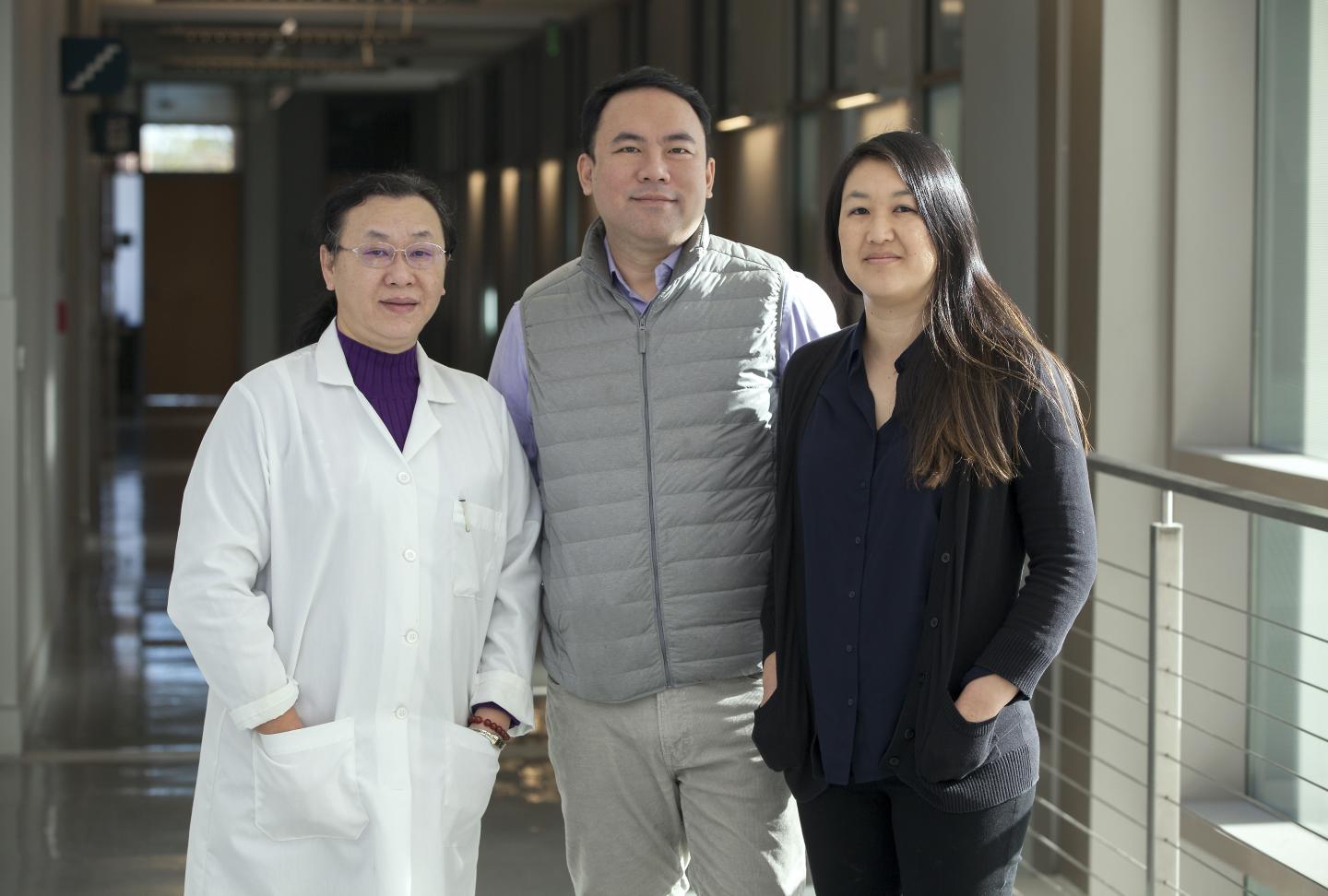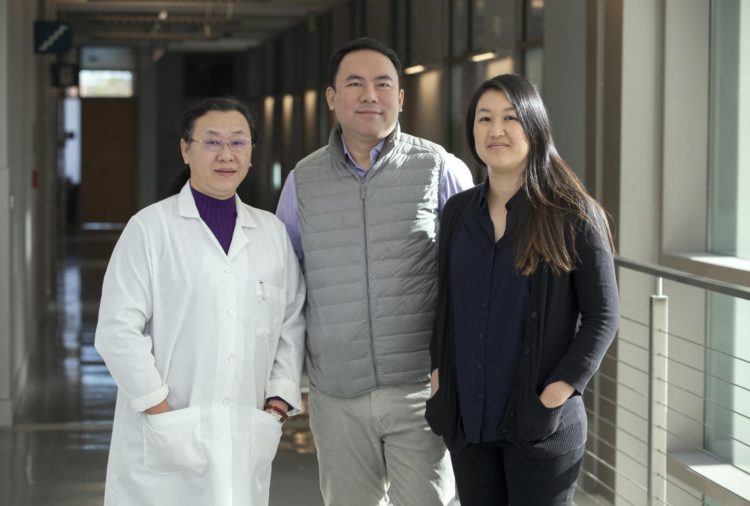Charleston, SC-based Lydex Pharmaceuticals has received a small business technology transfer grant from the NIH to investigate and develop compounds targeting key enzymes responsible for organ damage, inflammation and rejection after transplant

Credit: Sarah Pack, Medical University of South Carolina
Roughly 65 years ago, the first human organ transplant was successfully performed. A decade later, heart and liver transplants became possible. Now, a startup founded by researchers from the Medical University of South Carolina (MUSC) and elsewhere hopes to bring about the next major breakthrough.
While advancing technology and techniques has improved transplant outcomes dramatically, obstacles remain. One of the worst is the ischemia, or lack of blood supply, that the transplanted organ experiences as it goes from donor to recipient. Without a constant supply of blood, the cells of the organ are cut off from fresh oxygen and nutrients that they need to survive. However, sudden reintroduction of blood to the transplanted organ, known as reperfusion, floods cells with oxygen, setting off a chain reaction that leads to the production of free radicals that can trigger inflammation and cause organ damage. Ischemia-reperfusion injury also promotes organ rejection after transplant.
The startup, Lydex Pharmaceuticals, has received almost $300,000 in small business technology transfer grant funding from the National Institutes of Health to develop a novel approach to preventing reperfusion-related organ damage after liver transplant. MUSC researchers C. James Chou, Ph.D., a medicinal chemist; Sherine Chan, Ph.D., a mitochondrial biologist; and College of Charleston chemist Richard Himes, Ph.D., founded Lydex, which will partner with Zhi Zhong, M.D., Ph.D., a professor in the MUSC College of Pharmacy, on the project.
Lydex Pharmaceuticals is developing compounds known as histone deacetylase (HDAC) inhibitors to help prevent ischemia-reperfusion injury. Normally investigated for their potency as anti-cancer drugs, these inhibitors affect the level of gene expression within a cell. Lydex and MUSC researchers have shown that targeting specific HDAC enzymes within the liver markedly reduces both inflammation and tissue damage after reperfusion.
Normally, HDAC inhibitors are potent but have potential toxic effects as they hit unintended enzymes within the cell. The lead compound in development by Lydex promises high potency while also doing a better job of targeting only the enzymes involved in ischemia-reperfusion injury, which greatly minimizes the risk of toxic effects.
“What we see is that there are specific HDACs that promote oxidative stress and inflammation,” said Chan. “Our drug is a fast way of turning off these damaging processes before they lead to injury.”
This specificity makes the compounds an attractive and novel approach for helping prevent ischemia- reperfusion injury, and this breakthrough couldn’t have come at a better time.
A new epidemic of fatty liver disease looms on the horizon, according to Zhong. Fatty liver-induced liver fibrosis is becoming one of the most common indications for liver transplant.
“Up to 30% of the general population currently has fatty liver disease, which is expected to further increase,” said Zhong. “Because severe fatty livers are especially vulnerable to the damage caused by ischemia reperfusion, they are not currently used for liver transplant, exacerbating the shortage of donor organs. New drugs that minimize ischemia-reperfusion injury may increase the availability of transplantable livers and improve outcomes for these patients after transplant or major liver surgery.”
Even with an urgent need for a new treatment, more research is needed before HDAC inhibitors, currently in use as anti-cancer drugs, can be employed to help to prevent reperfusion injury after transplant and other major liver surgery. The team of Lydex and MUSC researchers is making strides toward this goal. Having verified the efficacy of the lead compound in biochemical assays, the team will next address the compounds’ therapeutic potential in mouse models of ischemia-reperfusion injury. In the long term, the team hopes to explore further whether they can use HDAC inhibitors to treat other diseases.
“This new therapeutic intervention, with its novel mechanism of action, could potentially broaden the therapeutic areas of HDAC inhibitors to include immune and inflammatory diseases,” said Chou.
###
Disclaimer: The content is solely the responsibility of the authors and does not necessarily represent the official views of the National Institutes of Health.
About the Medical University of South Carolina
Founded in 1824 in Charleston, the Medical University of South Carolina (MUSC) is the oldest medical school in the South, as well as the state’s only integrated, academic health sciences center with a unique charge to serve the state through education, research and patient care. Each year, MUSC educates and trains more than 3,000 students and 700 residents in six colleges: Dental Medicine, Graduate Studies, Health Professions, Medicine, Nursing and Pharmacy. The state’s leader in obtaining biomedical research funds, in fiscal year 2018, MUSC set a new high, bringing in more than $276.5 million. For information on academic programs, visit http://musc.
As the clinical health system of the Medical University of South Carolina, MUSC Health is dedicated to delivering the highest quality patient care available while training generations of competent, compassionate health care providers to serve the people of South Carolina and beyond. Comprising some 1,600 beds, more than 100 outreach sites, the MUSC College of Medicine, the physicians’ practice plan and nearly 275 telehealth locations, MUSC Health owns and operates eight hospitals situated in Charleston, Chester, Florence, Lancaster and Marion counties. In 2019, for the fifth consecutive year, U.S. News & World Report named MUSC Health the No. 1 hospital in South Carolina. To learn more about clinical patient services, visit http://muschealth.
MUSC and its affiliates have collective annual budgets of $3 billion. The more than 17,000 MUSC team members include world-class faculty, physicians, specialty providers and scientists who deliver groundbreaking education, research, technology and patient care.
About Lydex Pharmaceuticals
Lydex Pharmaceuticals is a Charleston-based startup working to develop next-generation inhibitors for multiple diseases. For more information, visit https:/
Media Contact
Heather Woolwine
[email protected]
843-792-7669





